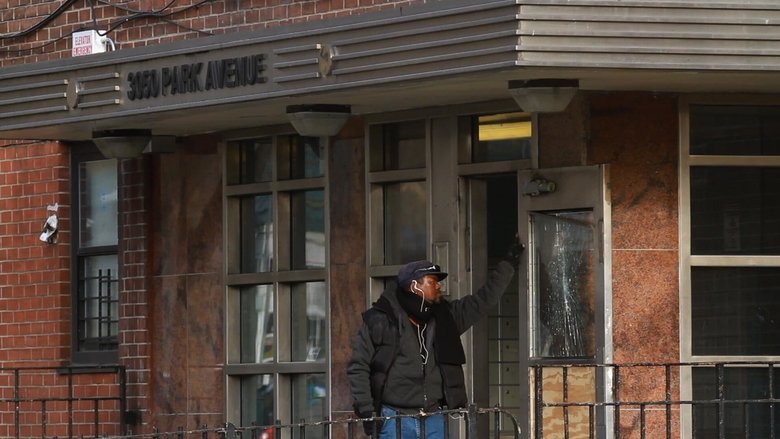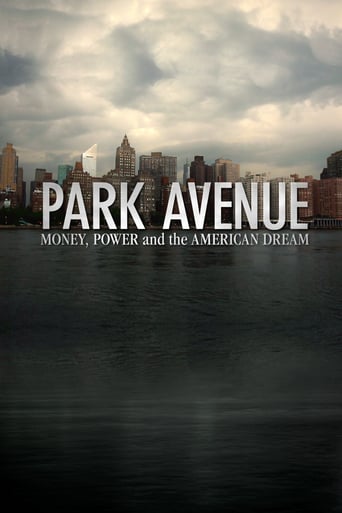
Park Avenue: Money, Power & The American Dream
November. 02,2012If income inequality were a sport, the residents of 740 Park Avenue in Manhattan would all be medalists. This address boasts the highest number of billionaires in the United States.
Similar titles

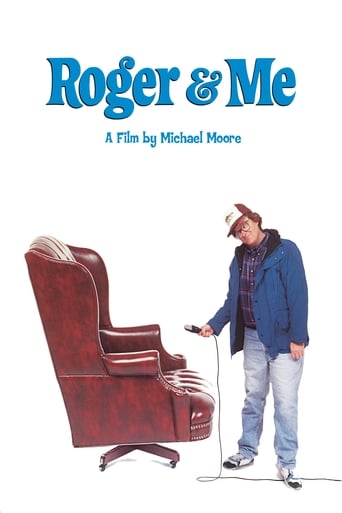

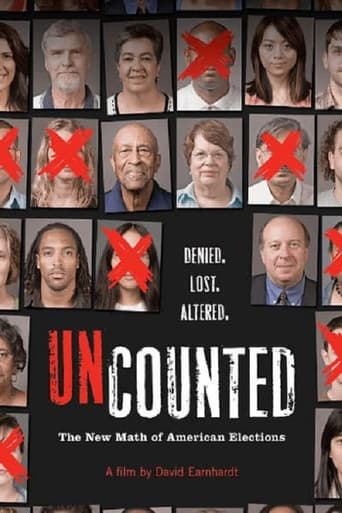
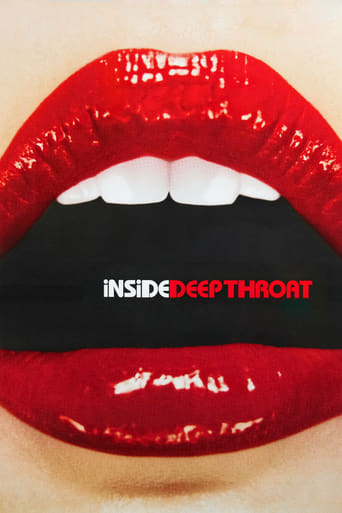

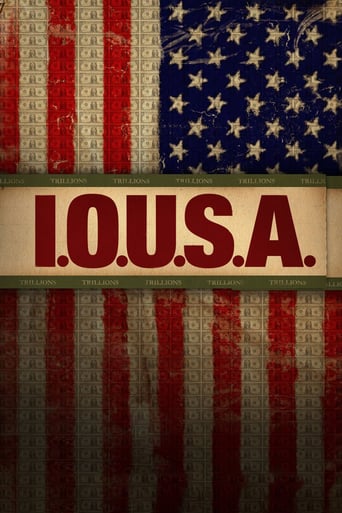
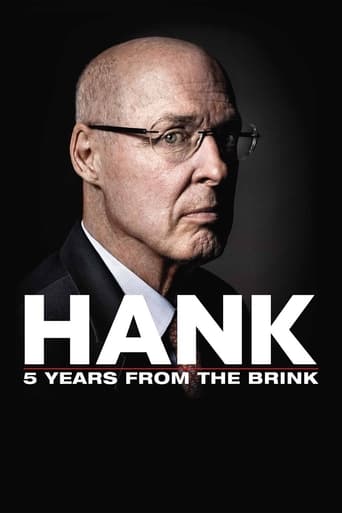
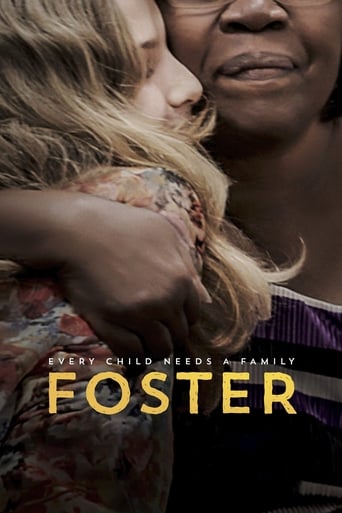
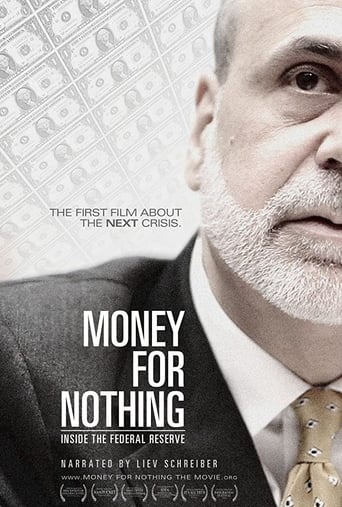
Reviews
Slow pace in the most part of the movie.
It's a good bad... and worth a popcorn matinée. While it's easy to lament what could have been...
It is neither dumb nor smart enough to be fun, and spends way too much time with its boring human characters.
The movie turns out to be a little better than the average. Starting from a romantic formula often seen in the cinema, it ends in the most predictable (and somewhat bland) way.
Review of: Alex Gibney's Park Avenue: Money, Power, and the American Dream Alex Gibney's Park Avenue: Money, Power, and the American Dream, is a documentary that compares the Park Avenue in Manhattan, NY to the Park Avenue of the South Bronx, NY. Gibney starts out by showing the audience the residential building 740 Park Avenue. Here, is the home of the most billionaires living on one block (and building), in all of the United States. The Film focuses on Economic Development and Inequality by using the comparison of the Park Avenue billionaires to the Park Avenue residents of the South Bronx. Eventually the director focuses his attention to these billionaires and the United States government. He brings up points that tie the interests of these billionaires to the way in which the government is currently corruptly run. He uses the classic "School House Rock" cartoon "I'm Just a Bill" to show that maybe in 1975 (when the cartoon came out) the S.H.R. interpretation may had been factual and educational in teaching kids how the system works. Today however, the reality up on Capitol Hill bares no resemblance to the cartoon. Today, bills rarely make it to the house to be voted on. Gibney goes on to make strong ties between Ann Rand's ideologies of capitalism in her book Atlas Shrugged with the underlying beliefs of certain CEO billionaires like the Koch brothers and Republican Senator Paul Ryan. Gibney is here stating that the Republican Party and the Democratic Party members have all been bought. They no longer have the interests of the voters, but they have the interests of the lobbyists who give them money for their campaigns. Gibney goes on and on giving examples of how corrupt the government system is today, and says that billionaires including the ones who live in 740 Park Avenue are constantly playing the game of capitalism. They know that in order for them to become richer, others have to become poorer. This is why they want to have close ties in Washington in order to get the bills they want passed. Although the film succeeds in lifting any veil that was hiding the ugly truths about our government system, it does not offer any solutions. Sure it gives us statistics and pie charts letting us know just how poor the majority of American citizens have become, while the 1% has only gotten richer. It ties this subject back into the beginning of the film where at one end of Park Avenue lives people in the 1%, while at the other side of Park Avenue in the South Bronx lives people in poverty struggling to give their kids shelter and an education. At some point in the film I was waiting for some logical solution scenarios to pop up. Gibney does a great job at making me shocked and angry at how the country's government no longer has the interests of the majority of its citizens in mind, but that is all I felt after it was over, angry. I felt angry and helpless. Maybe this film was produced by the 1% to scare us and put us down. Gibney really missed the marked on the ending of this film. It was surprising to see how stingy billionaires in 740 Park Avenue to their doormen, as one who was interviewed in the film said for Christmas he only received a $50 check from David Koch. What about the Park Avenue residents in the South Bronx? Their identities weren't given to us like the billionaires at 740 Park. They were mentioned very briefly and then forgotten until the last few minutes of the film. Gibney should have and could have interviewed a sociologist, professor of economics or urban planner in order to get their thoughts on how to improve the inequality of the blighted areas like the South Bronx. There is no need to only give the audience the disastrous details of America's economy without also mentioning the theories and plans being devised in order to rebuild and fix the enormous inequality gap.It makes me wonder if Gibney really believes in change for the better, or if his priority all along was just to scare his audience into a nihilist persona. If I had to rate this film on a scale of 1 to 5, I would give it a 2.5. It is not boring, and it will keep you watching, but it will leave you sorely disappointed.
Although very upsetting, this documentary was great. I wouldn't give it a 10 because it was a little short and incomplete. Interestingly, most of the people incriminated in this documentary declined to comment. It would have been nice to hear their point of view and comments on some of their speeches featured in the documentary.It seems that the only reviewers who didn't like this documentary just hated it. This says a lot more about them than it does about the documentary, which included a lot of plain economic facts. How can you disagree with facts? It's hard not to be shocked by some of the data presented here. I actually find it ironic that a lot of Republicans argue that America has become a communist country when the gap between the rich and the poor has never been bigger, and that lobbies sponsored by corporations draft every bill in this country. It is depressing to think that some people would be so gullible.Taxes for the rich have never been lower either. Many lower and middle class Americans get manipulated into rooting for the 1 % thinking that it will benefit them in the long run. Fact is, thanks to the Bush tax cuts, the rich has never paid as little tax. The argument was that this would create millions of jobs. All it really did was increasing our deficit by several trillions.Even though it won't gel with everyone, this documentary is a must-see.
I'm not an American citizen. I just live in America temporarily, so what I could provide is only an outsider view. First thing I felt after watching around half of this documentary is that it is biased and partial towards one political party. Also, it presented a complete partial view of Ayn Rand. It projected her as an evil of the poor. This documentary simply failed to understand that her philosophy applies to poor as much as it applies to the rich. You work hard two shifts back to back for a wage less than 20 usd pr hr and if you are forcefully asked to pay 30% of tax on it, how would you feel ? That was her point. This point applies equally to poor and the rich. This documentary failed to present this view, may be intentionally.
Is class warfare the rich against the poor, or is it the ultra-rich pitting the middle-class against the poor (and each other)? While maybe not objective, this documentary looks at the power behind the politics.I love that Jack Abramoff appears here and speaks candidly. I do not care whether he feels he was right or wrong, but that he is able to come forward and explain how the game is played really adds to our understanding.I further love the film's turn towards David Koch and from there towards the state of Wisconsin (where I have lived over 30 years). It was great to see familiar faces like Mahlon Mitchell and Mark Pocan, and hear the connection between Ayn Rand and Paul Ryan.We even got to see real folks in Waukesha and hear more of the Scott Walker prank phone call. From the start it looked like we would be focusing on the Park Avenue of Manhattan versus the Park Avenue of the Bronx. I am glad it went beyond that. Will other non-Dairy State viewers enjoy it as much? I cannot say.
Top Streaming Movies











